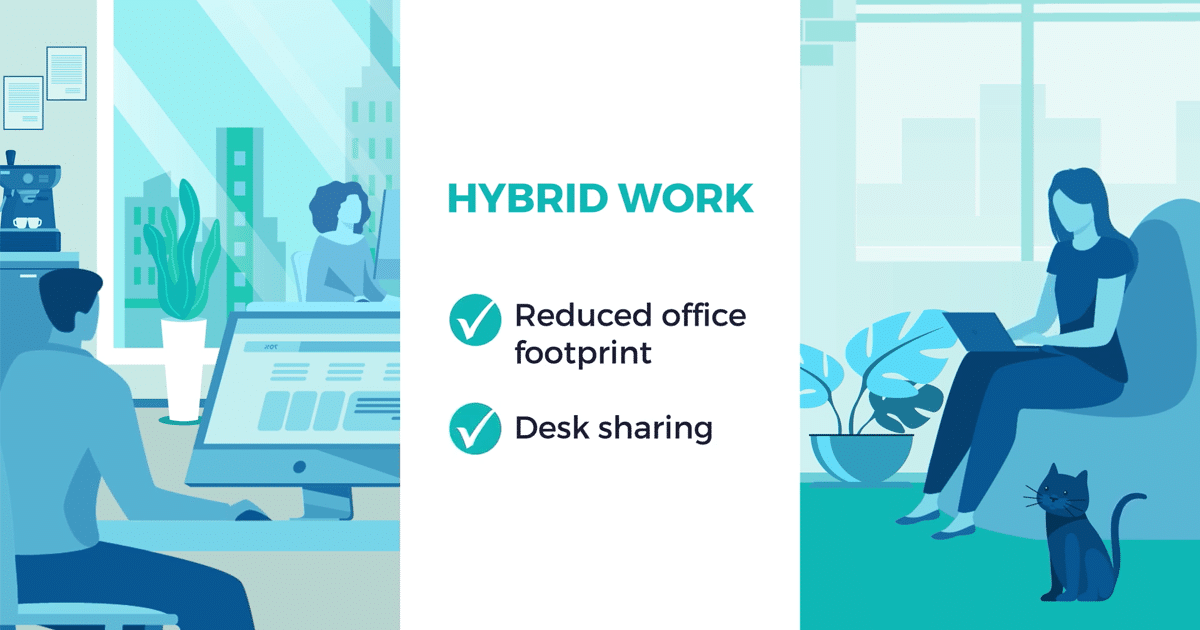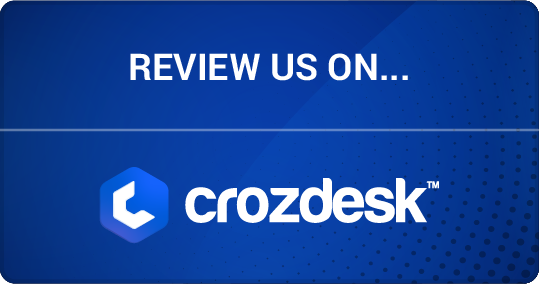What is IWMS Software? And what is its role in Modern Business?
Integrated Workplace Management Systems (IWMS) have emerged as crucial tools in managing facility and real estate costs, which typically account for over 20% of a company’s total expenses. With the ability to reduce facility maintenance costs, improve workspace management, and increase facility usage efficiency, IWMS solutions are a game-changer for businesses striving for operational excellence.
Benefits of Implementing IWMS
IWMS platforms offer numerous advantages, including enhanced efficiency, transparency, flexibility, and customer satisfaction in facility management. They support core business processes such as real estate management, asset & maintenance planning, space and workplace management, services management, project management, and sustainability management. These comprehensive systems are crucial in facilitating informed decision-making and maximizing monitoring and control within organizations.
Choosing the Right IWMS for Your Business
When selecting an IWMS, it’s crucial to consider your organization’s specific needs. This includes understanding the scope, functionality, and processes that the system should support. Factors like sustainability objectives, business continuity, compliance priorities, and strategic space planning play a significant role in determining the right IWMS solution.
Key Considerations in IWMS Selection
It’s vital to understand the outputs, reports, KPIs, and management information required from an IWMS. Global organizations might need multi-language, currency, and time-zone support. Additionally, selecting a standard, configurable solution over a customized one can increase flexibility and reduce total cost of ownership.
Integration and Transparency with IWMS
A robust IWMS should integrate with other IT solutions like ERP, HR, and Building Management Systems. This integration is vital for data exchange and real-time process integration, ensuring comprehensive transparency and control over all relevant aspects of facility and real estate management.
Real-time Monitoring and Decision Making
With the ability to track real-time data on space utilization and management, IWMS software enables businesses to eliminate underperforming facilities, optimize their functions, and continuously improve business processes. This leads to maximized efficiency and customer satisfaction, making IWMS a strategic tool for future-proofing businesses.
Adapting to Evolving Business Needs with IWMS
The dynamic nature of modern workplaces, especially in the context of hybrid work environments, underscores the need for adaptable IWMS solutions. These systems must be scalable, integrating additional modules easily to cater to unique organizational needs. As workplaces evolve, IWMS software becomes indispensable for managing the complexities of hybrid work arrangements, ensuring efficient space utilization, and fostering a flexible work environment.
Facilitating Hybrid Work Models
With the rise of hybrid work models, IWMS plays a crucial role in managing flexible work arrangements like hot desking or office hoteling. This includes managing infrastructure, real estate portfolios, and providing tools for effective space optimization. Through features like desk and room bookings, workplace AI, and request management, IWMS contributes to creating an agile and stable workplace, adapting to the demands of modern work culture.
Read also: 10 Key Considerations When Selecting a Workplace Reservations System
Comprehensive Management with IWMS
At its core, IWMS serves as a comprehensive management tool, streamlining a variety of workplace responsibilities. This includes everything from facility maintenance, capital project management, and maintenance management to real estate and sustainability management. By automating and integrating these diverse functions, IWMS software not only simplifies day-to-day operations but also aids in strategic decision-making and long-term planning.
Impact on Facility Management
Facility management is a key component of IWMS, encompassing tasks related to facility maintenance and management. This involves ensuring smooth operations, enhancing employee productivity, and maintaining a positive work environment. Tools within IWMS, such as desk booking software and wayfinding solutions, offer immediate benefits to employees, making the workplace more accessible and user-friendly.
Financial and Environmental Benefits of IWMS
One of the most significant advantages of implementing IWMS is the direct and indirect cost savings it offers. By optimizing real estate spending, maximizing occupancy rates, and improving maintenance management, IWMS can have a substantial impact on an organization’s bottom line. Additionally, IWMS contributes to environmental sustainability by enabling businesses to measure, manage, and reduce energy consumption, thereby minimizing their carbon footprint.
Enhancing Employee Experience and Engagement
Aside from financial benefits, IWMS plays a pivotal role in enhancing the hybrid workplace experience. By improving energy usage and creating a more engaging employee experience, IWMS helps organizations attract and retain talent. Space planners can use IWMS data to design spaces that foster collaboration, thereby positively influencing workplace culture and employee satisfaction.

Real Estate and Asset Management with IWMS
IWMS software significantly streamlines real estate and asset management, offering tools for lease administration, property management, and tax management. This helps in optimizing space management and provides a holistic view of real estate assets, enabling businesses to make informed decisions regarding space utilization and expenditure. Effective real estate management through IWMS leads to better space planning and cost management, ultimately enhancing the overall asset value of the organization.
Strategic Space Utilization and Planning
Effective space utilization is crucial for operational efficiency. IWMS software empowers facility managers to identify new opportunities and solutions to optimize the workplace environment. Real-time data on space utilization helps in making strategic decisions about office layouts, resource allocation, and planning for future expansions or reconfigurations, ensuring optimal use of available space.

Implementing IWMS for Long-term Success
The implementation of IWMS should align with the strategic goals and direction of the business. It requires a careful analysis of current methods, systems, and resources to fully harness the benefits of IWMS. A well-planned implementation strategy increases system functionality and process productivity, enabling businesses to adapt quickly to changing needs and market dynamics
Planning and Project Management with IWMS
Capital project management is a critical aspect of IWMS, encompassing operations and cost management for long-term capital-intensive projects. IWMS provides tools for planning, executing, and managing projects, document management, and financial accounting, ensuring that all activities are well-coordinated and data-driven
Leveraging Data for Informed Decisions
IWMS software serves as a repository of valuable data, offering insights into various aspects of facility management, real estate, and sustainability. Advanced analytics and reporting capabilities of IWMS enable leadership teams to make data-informed decisions, optimizing resource allocation and workplace strategies. This data-driven approach is crucial in a rapidly changing business environment, where timely and accurate information can significantly impact operational efficiency and success.
Read also: The Facility Manager’s Guide to Using Data in the Hybrid Workplace
Future Outlook of IWMS
As workplace complexities continue to evolve, IWMS solutions are expected to advance in parallel. The future of IWMS lies in its ability to simplify complex work arrangements, integrate data from various resources, and provide a comprehensive view of the workplace. This will be instrumental in managing hybrid and distributed work models, ensuring that businesses stay agile and responsive to emerging trends and challenges.
Enhancing Collaboration and Connectivity with IWMS
IWMS software fosters a collaborative environment by integrating various workplace functions. This integration enhances connectivity between departments, streamlining communication and coordination. With features like real-time desk and room bookings, IWMS solutions facilitate smoother interactions and meetings, making the workplace more dynamic and responsive to the needs of a diverse workforce.
Building a Smart and Sustainable Workplace
The role of IWMS in creating a smart and sustainable workplace is increasingly important. By utilizing IoT sensors and AI, IWMS systems can automate and optimize the use of resources like lighting and HVAC, reducing energy consumption and waste. This not only contributes to environmental sustainability but also results in cost savings, aligning with the broader goals of corporate responsibility and efficiency.
Customization and Scalability of IWMS Solutions
The ability to customize and scale IWMS solutions according to specific business needs is a key factor in their effectiveness. As organizations grow and evolve, their IWMS can adapt, offering tailored solutions for space management, asset tracking, and maintenance. This scalability ensures that businesses of all sizes, from startups to large enterprises, can leverage IWMS to its fullest potential.
Adapting to Changing Workplace Trends
Modern IWMS software is adept at adapting to changing workplace trends, such as the rise of remote work and the need for flexible office spaces. By providing data-driven insights and tools for managing these trends, IWMS helps businesses stay ahead of the curve, ensuring their workplace strategies are aligned with current and future demands.
Maximizing Return on Investment with IWMS
Implementing an IWMS system can significantly enhance a company’s return on investment (ROI). By consolidating multiple systems into a single integrated solution, businesses can reduce operational costs, optimize asset utilization, and improve overall workplace efficiency. The long-term financial benefits of IWMS, coupled with its impact on employee satisfaction and productivity, make it a strategic investment for any forward-thinking organization.
Read also: The ROI of Smart Workplace Investments (White Paper)
Continuous Improvement and Innovation
The journey with IWMS does not end with implementation. Continuous improvement and innovation are integral to its success. As businesses grow and markets evolve, IWMS software can be updated and expanded to meet new challenges, ensuring that the workplace remains efficient, agile, and aligned with the organization’s strategic objectives.
Integrating Technology and Workplace Management
Modern IWMS solutions are not just about managing physical spaces but also about seamlessly integrating technology into the workplace. This includes adopting advanced technologies like AI, machine learning, and IoT to enhance workplace operations. Such integration leads to more intelligent decision-making, predictive maintenance, and a more responsive and adaptive workplace environment.</
Facilitating Remote and Hybrid Work Models
IWMS software is particularly effective in facilitating remote and hybrid work models. By providing tools for remote access to workplace resources, managing flexible seating arrangements, and integrating communication platforms, IWMS helps maintain productivity and collaboration regardless of physical location. This adaptability is essential in today’s increasingly remote and hybrid work scenarios.
Read also: Navigating Hybrid Work: A Toolkit for Building Successful Strategies
Security and Compliance in the Modern Workplace
Security and compliance are critical concerns for businesses, and IWMS plays a significant role in addressing these issues. With features for tracking and managing access to facilities, maintaining records for compliance, and ensuring the security of workplace data, IWMS provides a robust framework for meeting regulatory requirements and safeguarding business operations.
Streamlining Operations and Reducing Overheads
By streamlining operations and reducing overheads, IWMS contributes significantly to operational excellence. Automated processes, efficient space utilization, and optimized resource management lead to a reduction in unnecessary expenditures and a boost in overall operational efficiency. This streamlined approach is vital for businesses looking to optimize their operations and reduce waste.
Driving Innovation and Future Growth
IWMS is not just a tool for managing the present but also a driver for innovation and future growth. By providing insights into current operations and predicting future trends, IWMS helps businesses stay ahead of the curve. This foresight enables companies to innovate, grow, and adapt to future challenges, positioning them for long-term success.
Conclusion: The Strategic Value of IWMS
In conclusion, the strategic value of IWMS in modern business cannot be overstated. From enhancing efficiency and productivity to driving innovation and growth, IWMS is a cornerstone of strategic management in the contemporary workplace. Its integration of technology, management of physical and virtual spaces, and adaptability to changing trends make it an indispensable tool for any organization looking to thrive in today’s dynamic business environment.






